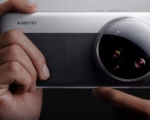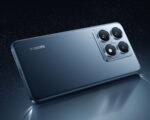In a recent podcast, Apple executives revealed an important decision made by the company’s engineers in 2017 that laid the groundwork for the introduction of Apple Intelligence in devices like the M1 Mac models. Tim Millet, Apple’s Vice President of Platform Architecture, and Tom Boger, Senior Director of Mac & iPad Product Marketing, discussed how the decision to incorporate neural networks into the M1 chipset made the devices AI-ready, even before the explosion of generative AI in 2022. This forward-thinking move by Apple enabled its hardware to support advanced artificial intelligence features years before they became mainstream.
The key moment came in 2017 when Apple engineers became aware of the emerging potential of neural networks, just after the publication of the first papers on the subject. This technology would later evolve into transformer networks, the very foundation of today’s generative AI systems. The decision to build the M1 chipset with these capabilities in mind was ahead of its time, as it was released in 2020, a full two years before generative AI started dominating the tech landscape. This strategic foresight positioned Apple to leverage AI in a way that competitors struggled to match.
The executives also discussed how the M1 chipset integrates AI in a way that is tightly coupled with Apple’s hardware and software ecosystem. By embedding neural networks directly into the hardware, Apple ensured that AI functionalities would be optimized across its devices, resulting in smoother performance and more efficient processing of tasks like image recognition, natural language processing, and machine learning. This holistic approach to AI integration is something that Apple has continued to refine across its range of products.
As the generative AI trend gains momentum, Apple’s decision in 2017 looks even more prescient. The M1 chipset’s AI capabilities allow Apple to stay ahead of the curve in terms of performance and user experience. With the M2 and future chipsets expected to continue this trend, Apple has effectively positioned itself as a leader in integrating AI directly into its hardware, ensuring its devices are ready for the evolving demands of the tech industry.

















